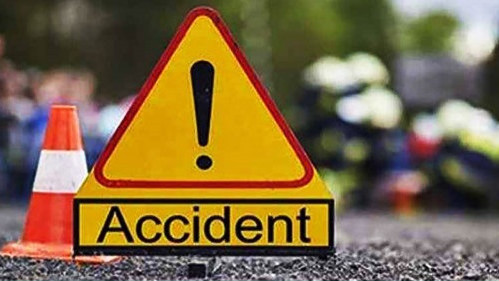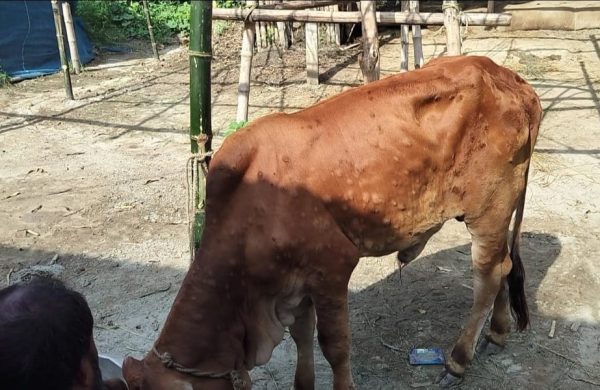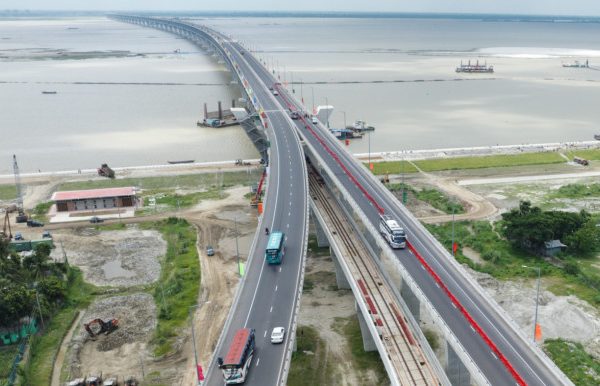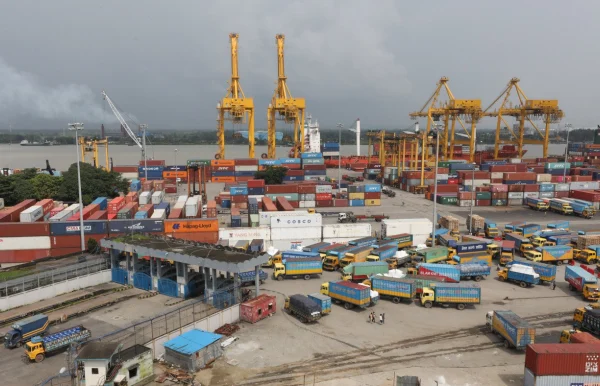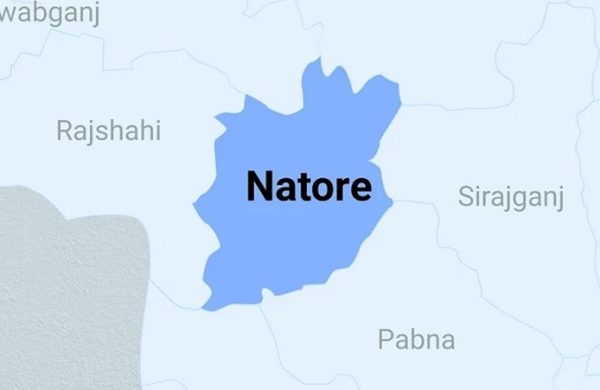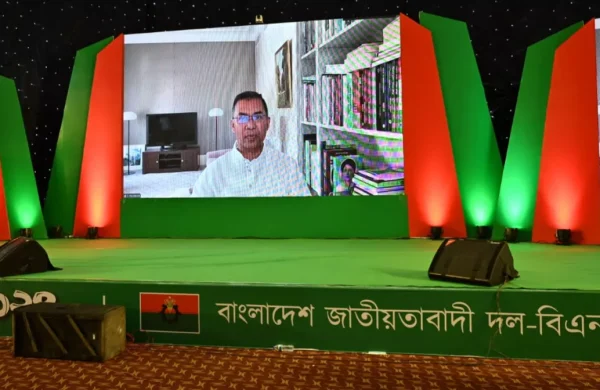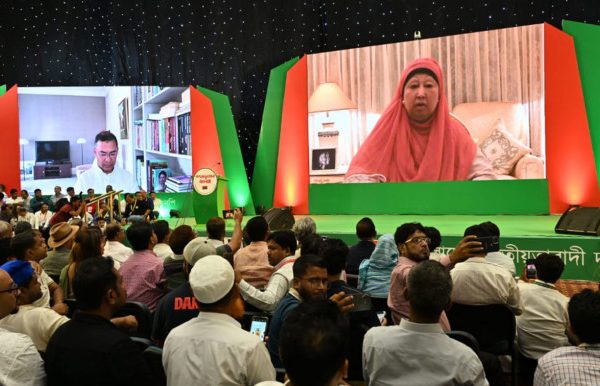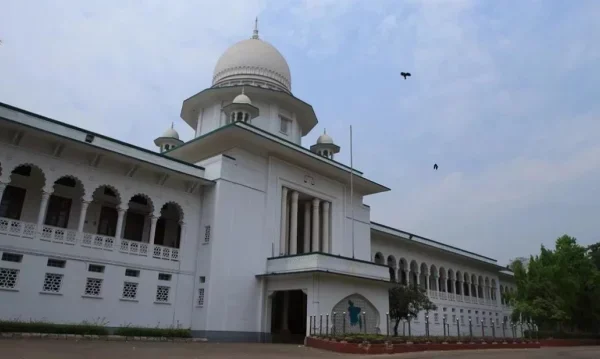Combating climate change: How BWDB projects aim to safeguard Khulna’s future
- Update Time : Friday, January 17, 2025
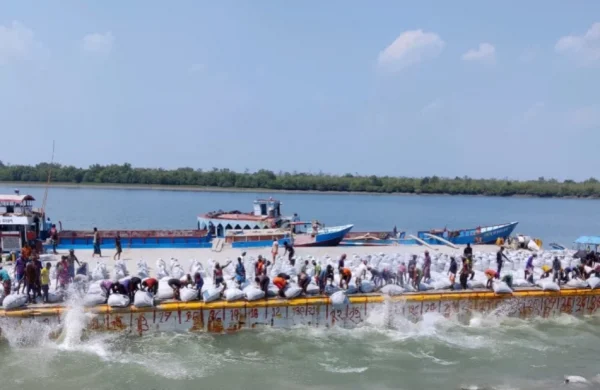
- Average project completion stands at 46% across Khulna region
- Projects cover riverbank protection, canal excavation, embankments, etc
- Work aims to prevent erosion, waterlogging and tidal surge damage
Khulna Correspondent
To combat the impacts of climate change, the Bangladesh Water Development Board (BWDB) is implementing five projects in four districts of the Khulna region, with a total budget of over Tk500 crore.
These projects involve protecting 728 kilometres of critical riverbanks, re-excavating canals, building and repairing embankments, and repairing regulators.
So far an average of 46% of the work on these five projects has been completed. Once finished the projects are expected to protect the region from waterlogging caused by excessive rainfall, prevent embankment erosion from tidal surges and save farmlands, homes and properties from river erosion.
Work on the rehabilitation of Polder No 14/1 in North Bedkashi and South Bedkashi, Koyra upazila, began in July 2021. Costing Tk120 crore and scheduled for completion by December, 17.5% of the project has been completed so far.
Under this project, the rehabilitation of 13.68km of embankments, protective slope works for 3.03km, riverbank protection for 10.97km and repair of existing protective works for 4.095km are planned.
Additionally, 6.155km of drainage canals will be re-excavated, four regulators replaced, 13 RCC inlets constructed and 2km of the Kopotakkho River dredged.
The drainage improvement project for polders No 1, 2, 6-8 and 6-8 (extension) in Satkhira Sadar, Kalaroa, Assasuni, Tala and Debhata upazilas commenced in June 2020 with a budget of Tk100 crore. Completion is expected by June, with 78.5% progress reported so far.
This includes rebuilding six regulators, repairing 21 regulators, re-excavating 59.05km of the Morichchap and Betna rivers, dredging 21.6km of the Betna River, re-excavating 283.295km of internal canals, rehabilitating 104.12km of embankments, and performing 0.7km of slope protection works.
In Shyamnagar upazila, Satkhira, the rehabilitation of Polder No 15 began in October 2021 with an allocation of Tk130 crore. This project is expected to conclude by June, with 34% of the work completed so far.
The project entails rehabilitating 0.6km of embankments, protecting 21.081km of embankments with slopes, constructing riverbank protection along 7.819km, replacing five regulators, building 11 inlets and re-excavating 22.5 km of drainage canals across eight sites.
Meanwhile, in Bagerhat’s Morrelganj upazila, the project to protect the Panguchhi River from erosion and re-excavate the Bishkhali River began in July 2022. With a Tk100-crore budget, this project is set to finish by December, and 24.77% of the work has been completed.
Planned activities include protecting 10.75km of riverbanks along the Panguchhi, repairing 0.962km of riverbank protection on the right bank, dredging 23.73km of the Bishkhali (removing 2.431 million cubic metres of soil) and re-excavating 18.3km of five branch canals of the Bishkhali River (removing 370,000 cubic metres of soil).
The Madhumati-Nabaganga sub-project in Lohagara upazila, Narail, focuses on rehabilitating the Nabaganga River and maintaining environmental balance through dredging. Launched in July 2019, the Tk60-crore project initially aimed to be completed by December last year, with 80% of the work already done.
It includes re-excavating 15.5km and dredging 27.5km of rivers (22km of the Nabaganga and 5.5km of the Madhumati). Of this, 4.5 km of dredging on the Madhumati is being carried out with the BWDB’s own dredgers.
Additional work includes constructing 4.24km of riverbank protection, re-excavating 72.205km of canals across 20 sites, repairing 20km of embankments, building 3.9km of new embankments, and reconstructing three regulators and six culverts.
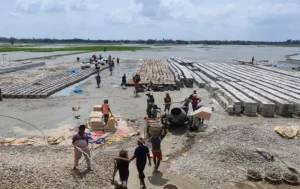
CHALLENGES
Bidyut Kumar Saha, additional chief engineer for the BWDB’s southwestern zone, said on Monday that sustainable embankment construction faced challenges like insufficient operational budgets, a lack of construction materials (eg, quality stone chips, sand and steel sheet piles), limited skilled manpower and equipment and increased sedimentation in rivers due to rising sea levels.
He added that natural disasters, short implementation periods (November to May) and excessive rainfall exacerbated the situation.
Moreover, heatwaves from April to June reduced working hours, Bidyut said, emphasizing the importance of consulting the BWDB for road construction on embankments and refraining from allocating government land along rivers or canals.
The comments were voiced at a divisional workshop on climate and disaster risk financing and insurance policies held in Khulna, organized by An Organization for Socio-Economic Development (AOSED) and with support from CARE Bangladesh.
At the workshop, Bidyut Kumar Saha presented the region’s embankment and river erosion situation and the impact of climate change. Participants, including public representatives, agricultural experts, academics and NGO workers, discussed climate financing needs and advocacy strategies.
AOSED Executive Director Shamim Arfeen delivered the opening remarks, while agriculturist Dr SM Ferdous moderated the session.
Among the speakers were Dr Tusar Kanti Roy from Kuet, Rifat Jahan Usha from Khulna Agricultural University and officials of the BWDB and CARE Bangladesh.


